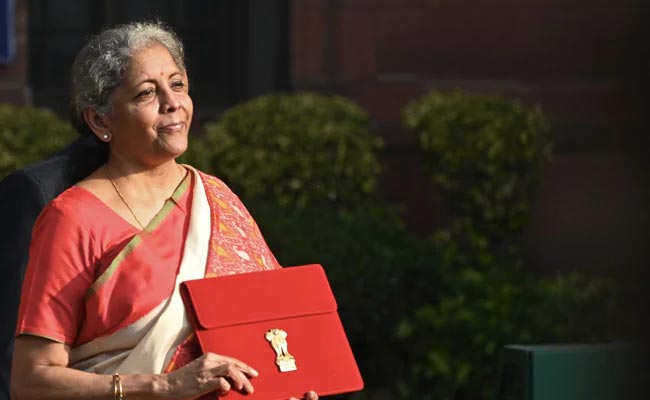
India has significantly reduced customs duties on high-end motorcycles, luxury cars, and smartphone components in its Union Budget 2025-26.
This decision, seen as beneficial to American companies such as Harley-Davidson, Tesla, and Apple, comes in the wake of former US President Donald Trump’s criticism of India as a "tremendous tariff maker."
However, Finance Minister Nirmala Sitharaman clarified that the duty revisions were part of India's broader economic strategy and not a direct response to Trump’s tariff threats.
"We are focused on strengthening the Indian economy and turning it into a manufacturing hub. Our decisions are based on national interests, not external pressures," Sitharaman stated in an exclusive interview with NDTV’s Sanjay Pugalia.
During her budget speech, Sitharaman announced that import duties on high-end motorcycles (completely built-up or CBU units) with engine capacities of up to 1,600cc have been slashed from 50% to 40%.
Additionally, the import duty on semi-knocked down (SKD) kits has been reduced from 25% to 20%, while completely knocked down (CKD) units will now be taxed 10% instead of 15%.
These tax cuts are expected to facilitate the import of Harley-Davidson motorcycles, an issue that has long been a sticking point in India-US trade relations.
Harley-Davidson first entered India in 2010 under the "mangoes for motorcycles" trade deal between India and the US. However, the company exited the Indian market in September 2020 due to restructuring.
A month later, Hero MotoCorp partnered with Harley-Davidson to manufacture and sell its bikes in India, including the Harley-Davidson 440X, the smallest motorcycle in the brand’s lineup.
During his first term, Trump had criticized India’s 50% import duty on Harley-Davidson motorcycles, calling it "unacceptable."
The budget also introduced significant reductions in tariffs on luxury cars, including station wagons and racecars priced above $40,000, lowering the import duty from 125% to 70%.
Additionally, India has scrapped basic customs duties on lithium-ion batteries used in electric vehicles, a move aimed at boosting local EV manufacturing.
While major EV players are already present in India, this policy change could serve as an added incentive for Tesla, which has been eyeing the Indian market.
In April 2024, Tesla CEO Elon Musk had planned a visit to India to meet Prime Minister Narendra Modi, fueling speculation about an investment in the country. However, Musk later canceled the visit due to "heavy Tesla obligations."
In a move that could benefit Apple, the Indian government has exempted 28 mobile phone battery production components from customs duties.
This policy aims to lower the cost of smartphones and accessories while further strengthening India’s position as the world’s second-largest mobile phone manufacturer.
Apple, which has been expanding its footprint in India, stands to gain significantly from this reduction. According to Reuters, Apple accounted for 23% of India's total smartphone revenue in 2024.
With Trump emphasizing an "America First" trade policy and threatening to introduce 100% tariffs on BRICS nations, including India, New Delhi’s latest import tax cuts are being interpreted as a diplomatic move to ease trade tensions.
Trump has previously accused India of imposing some of the highest tariffs among major economies, hinting at possible retaliatory taxes on Indian exports.
By lowering import duties, India appears to be strategically positioning itself to reduce trade friction with the US and avoid retaliatory tariffs, attract foreign investments, particularly from American firms like Tesla and Apple, and capitalize on the US-China trade war, potentially increasing its share in global supply chains.
With Trump’s tariff policies causing uncertainty in global markets, India’s import tax cuts could serve as a buffer against potential trade disruptions, according to Reuters.













